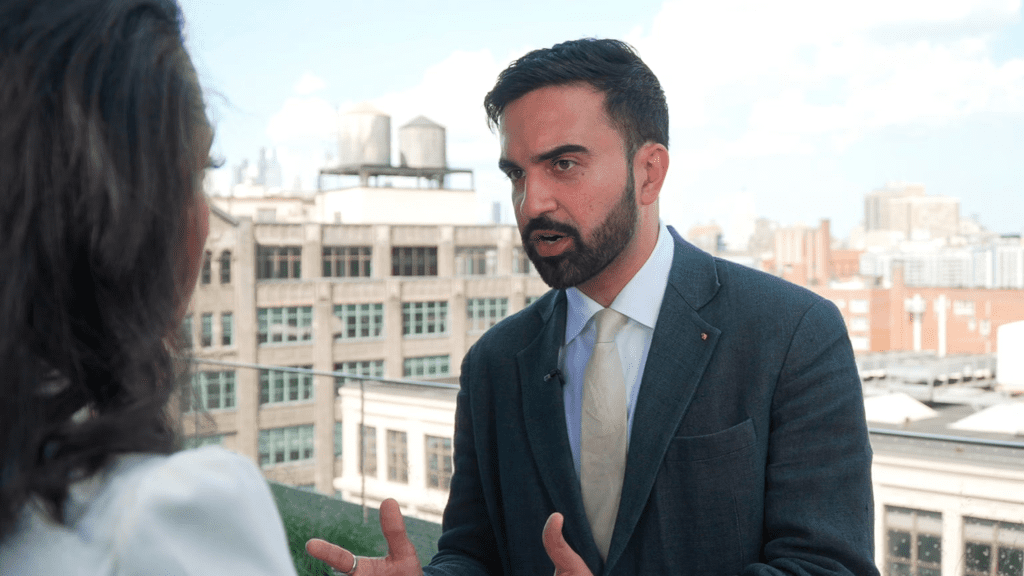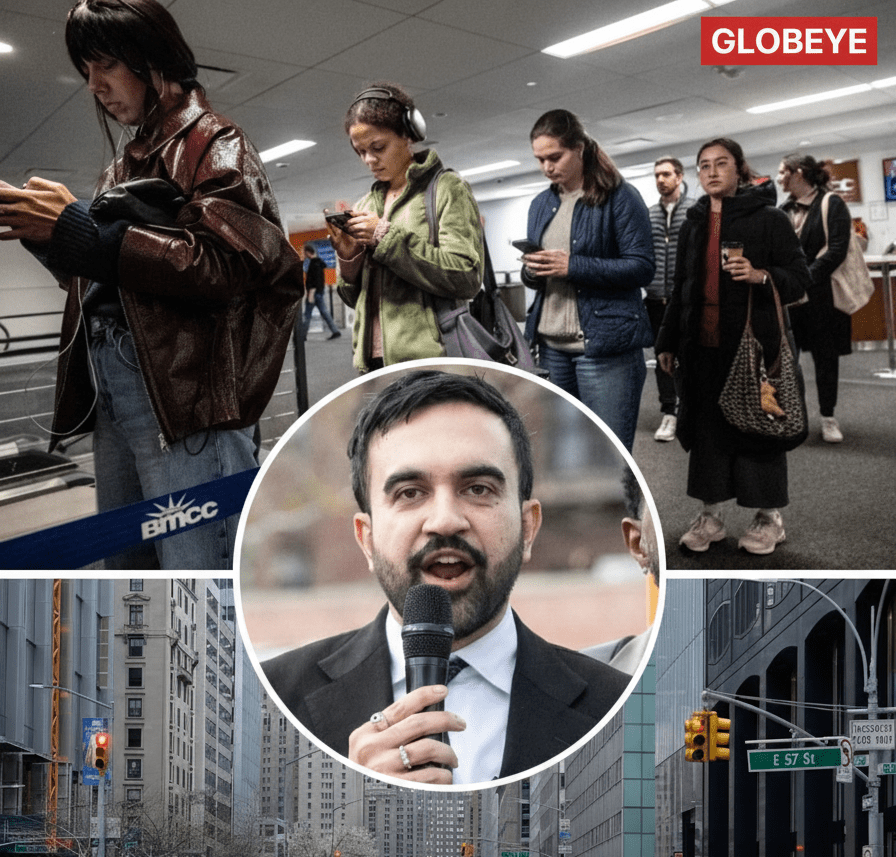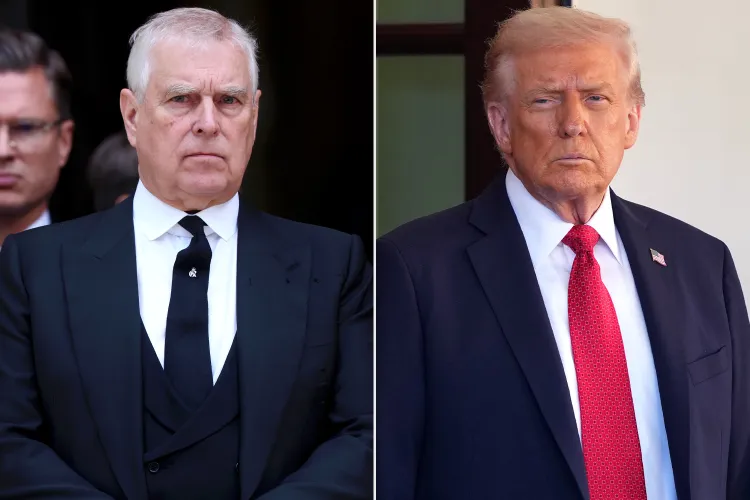Poll Reveals Hundreds of Thousands of New Yorkers Would Flee the City if Socialist Candidate Zohran Mamdani Becomes Mayor — Sparking Fears of the Largest Population Flight in U.S. History
A stunning new poll has sent shockwaves through New York City’s political and business circles, suggesting that nearly a million residents are prepared to pack up and leave if Democratic Socialist candidate Zohran Mamdani wins the upcoming mayoral election. The numbers paint a grim picture for the city’s future, with around 9 percent of New Yorkers — roughly 765,000 people — saying they would “definitely” leave the city if Mamdani becomes the 111th mayor. Another 25 percent, or more than two million residents, said they would “consider” leaving under his administration.
The survey, conducted by J.L. Partners, underscores deep anxiety about the future direction of the city under Mamdani’s leadership. With his progressive platform promising sweeping changes — from fully taxpayer-funded public transit to higher taxes on the wealthy and expanded tenant protections — many residents fear an economic collapse that could accelerate New York’s already fragile recovery from years of population decline.

Of the city’s 8.4 million residents, those most eager to leave are older New Yorkers, higher earners, and residents of Staten Island, according to the poll. About one in five Staten Island respondents said they would “definitely” go, and more than half said they would at least consider moving. High-income households, particularly those earning above $250,000 a year, were among the most likely to say they could not afford to stay in a city led by Mamdani.
The poll’s language reflected not just discontent but outright dread. Respondents used terms like “nightmare,” “collapse,” and “unlivable” to describe what they believe New York City would look like under Mamdani’s leadership. Pollster James Johnson, who led the study, said the findings highlight an unprecedented level of fear about the city’s political future. “If anywhere near those numbers of people leave, the economic shock would be unlike anything we’ve seen before,” he warned.

The sentiment among voters comes as the race for mayor enters its final days. Mamdani, a 34-year-old assemblyman from Queens, has energized young progressives and the Democratic Socialist movement with a platform built on housing justice, transit equity, and class reform. But his rise has alarmed many moderates and business leaders who see his ideas as unrealistic and potentially destructive to the city’s economic backbone.
The specter of an exodus is particularly worrying for city officials and economists. New York has already seen an estimated 5 percent population drop since 2020, much of it driven by rising costs, remote work, and post-pandemic shifts. Another major outflow — especially one concentrated among high earners — could devastate the city’s tax base, strain municipal budgets, and accelerate the decline of its real estate market. Experts estimate that losing even 250,000 taxpayers could reduce annual revenue by billions of dollars, forcing deep cuts to city services.
For many residents, the concern is not ideological but practical. A 48-year-old finance worker from Midtown said she would “immediately start planning to move” if Mamdani wins. “It’s not just about politics,” she said. “It’s about whether you can afford to live here when your taxes skyrocket, your rent goes up, and your neighborhood feels less safe.” Another respondent, a small business owner from Brooklyn, said bluntly, “If he wins, I’m out within six months.”

Supporters of Mamdani, however, dismiss such fears as political theater. They argue that the threats to leave come mostly from wealthier New Yorkers who have long resisted policies that benefit working-class residents. Mamdani himself has framed his campaign as a rejection of the “old, broken order” that he says caters to elites while neglecting everyday New Yorkers. “If people want to leave because they can no longer exploit the city, maybe that’s okay,” he said in a recent campaign event. “We’re building a city that works for everyone — not just the few.”
That message resonates with younger voters, renters, and those frustrated by the city’s sky-high living costs. Mamdani’s platform promises free public bus service, stronger rent stabilization laws, and a citywide affordable housing overhaul. His allies argue that such policies could help retain the next generation of residents, even if some older or wealthier New Yorkers choose to depart.

Still, many fear the transition could be catastrophic. New York’s economy depends heavily on its upper-middle class and affluent taxpayers, who contribute a disproportionate share of income and property taxes. If even a fraction of those now threatening to leave make good on their plans, the consequences could mirror what happened in the 1970s, when fiscal crisis and crime waves drove hundreds of thousands out of the city.
Business leaders are sounding the alarm. Several real estate executives warned that property values could nosedive if a socialist candidate takes office, while restaurant and retail groups fear consumer spending would plummet. “We could be looking at an economic death spiral,” said one Manhattan developer. “Once people start leaving, others follow. It becomes psychological — like the city’s losing its magic.”
The poll’s timing could prove pivotal in the final hours of the campaign. Mamdani’s opponents, including moderate Democrats and Republicans, have seized on the numbers as evidence that his leadership would “break” the city. One political strategist said the findings could sway undecided voters who fear New York’s fragile stability cannot survive another ideological experiment. “New Yorkers have lived through enough — pandemic, crime, inflation,” the strategist said. “They don’t want to gamble the city’s future on an experiment in socialism.”

Despite the anxiety, Mamdani’s supporters are pushing back hard, painting the poll as media fearmongering and defending their candidate as the only one willing to tackle systemic inequality. They argue that the so-called “flight threat” is exaggerated and reflects the same resistance every reformer faces when challenging entrenched interests. For them, Mamdani represents a generational shift — a chance to rewrite the city’s identity after decades of political stagnation.
For now, New York stands on the edge of a defining moment. The election will decide not only its next mayor but, potentially, its population future. If the poll proves accurate, the city could experience one of the largest internal migrations in American history — a wave of departures that would ripple through every borough, reshaping the economic, cultural, and demographic makeup of the world’s most famous city.
For some, that possibility feels like the end of an era. For others, it’s the beginning of something new. Either way, the clock is ticking toward a decision that could redefine what it means to be a New Yorker — and who chooses to stay.



